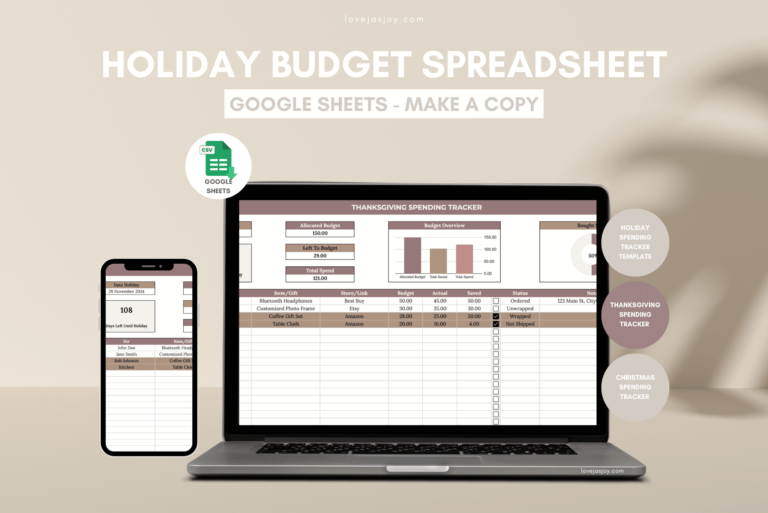Essential Money Management Strategies for Students: Long-Term Financial Success

Disclaimer
Please note that this blog post may contain affiliate links to products or services from third-party websites. The information provided in this blog post is based our own personal experiences, research, and opinions. By reading this blog post, you acknowledge and agree to the terms of our full disclaimer. If you have any concerns or questions, please feel free to contact us.
Managing your money wisely is a crucial decision to make as a student and young adult. You will be faced with numerous financial obstacles here on out, and trust me, they’re inevitable. So, start making smart financial decisions today. It all starts with building your financial literacy and executing money management strategies that will set the stage for long-term financial success. This post just so happens to provide those strategies and benefits for you!
WITH THAT SAID, HERE ARE ESSENTIAL MONEY MANAGEMENT STRATEGIES FOR STUDENTS: LONG-TERM FINANCIAL SUCCESS!
Table of Contents
- #1 WHY YOU SHOULD START MANAGING YOUR MONEY
- #2 LONG-TERM BENEFITS OF MANAGING YOUR MONEY WISELY
- #3 TRACK YOUR EXPENSES
- #4 SET LONG-TERM FINANCIAL GOALS
- #5 BUILD CREDIT INTO YOUR BUDGET
- #6 MINIMIZE BORROWING
- #7 PURSUE SCHOLARSHIPS AND GRANTS
- #8 BUILD UP YOUR SAVINGS
- #9 DIVERSIFY YOUR INCOME
- #10 LIVE BELOW YOUR MEANS
- #11 THINK GREEN
- #12 SEEK FINANCIAL GUIDANCE
And God is able to bless you abundantly, so that in all things at all times, having all that you need, you will abound in every good work.
2 Corinthians 9:8 Tweet
Join our "Love money Scoops" group!
Join us in achieving financial stability! Receive a wealth of practical tips, budgeting hacks, investment insights, and strategies to achieve your financial goals!
#1: WHY YOU SHOULD START MANAGING YOUR MONEY
Managing your money early sets the groundwork for strong financial habits. Not only does it give you control over your finances, but it also opens the door to more opportunities. This means, knowing how to effectively manage your money will help you prevent reckless spending, plan for future financial goals, pay off debt, build your savings and more. It is not merely about controlling money, it is about cultivating financial empowerment.
#2: LONG-TERM BENEFITS OF MANAGING YOUR MONEY WISELY
Wisely managing your finances as a student and young adult comes with numerous long-term rewards. They include, but are not limited to, fostering a debt-free lifestyle, building a healthy credit profile, promoting financial independence, and confidently allocating your money. Utilizing this skill will serve you far beyond your academic years and will provide more than what a job can give to you. It cultivates discipline and responsibility which no one can take away from you. You will be able to continuously, and confidently, build yourself up.
#3: TRACK YOUR EXPENSES
This money management strategy is essential for creating a successful budget and financial plan for yourself. Tracking your expenses (bills, personal spendings etc) is important! Building the habit to track your expenses will allow you to identify patterns, understand where your money goes, and adjust your spending habits accordingly.
Starting this money management strategy will lead you to making wiser financial decisions.
#4: SET LONG-TERM FINANCIAL GOALS
Setting long-term SMART financial goals for yourself will motivate you to stay disciplined and committed to achieving financial success. Goals like saving for a post-graduation trip, investing into your own business, or building your savings for emergencies, will encourage prioritizing living expenses and eliminating the non-essentials. This money management strategy will help you be more intentional with handling your finances.

Master Your Money
The best 7 finance books for you to achieve financial success, build your financial literacy and confidence. These books will encourage you to have a positive money mindset and cultivate the financial future you want!
#5: BUILD CREDIT INTO YOUR BUDGET
Building your credit with a credit card will benefit your financial future, if you know how to control your spendings. It is ideal to start using one at a young age because you have the luxury of having less financial responsibilities, and time is more in your favor. Building good credit will provide more opportunities for loans, buying a house, a car and much more!
If you do get a credit card, or already have one, conduct your research. It is ideal to sign up for low rates, no fees and bonuses like cash back.
#6: MINIMIZE BORROWING
Student loans may be an essential financial source for paying your tuition, but it is wise to only borrow what you need. If you receive a refund from your financial aid office, pay it back into your student loans to avoid accumulating more interest. Minimizing debt will significantly ease your financial stress during school and post-graduation.
#7: PURSUE SCHOLARSHIPS AND GRANTS
There are hundreds of opportunities to apply for scholarships and grants, you just need to look for them. Receiving free money is better than borrowing the money. Continually seek out scholarships and grants to alleviate the financial burden of tuition fees, books, and more. Remember that every dollar you do not have to spend, is an extra dollar you have to save and invest into your future!
#8: BUILD UP YOUR SAVINGS
Always, always, always include a savings plan. Save for emergencies, unexpected expenses, important occasions, debt! Saving should be considered an expense, a bill to be paid, NOT an option. Shifting your perspective about saving FIRST, prior to variable expenses, will benefit you greatly! It provides a financial buffer and it gives you flexibility to seize unexpected opportunities.
#9: DIVERSIFY YOUR INCOME
Relying on a single income source, one job, can be risky. The reality that there is a possibility of losing that one job, that only source of income, is scary. With that said, diversifying with part-time jobs, freelance gigs, investments, passive/residual income streams will alleviate financial stress AND create financial opportunities.
The saying is, have your eggs in multiple baskets! It is a millionaire mindset approach to ensure financial stability.
#10: LIVE BELOW YOUR MEANS
I know this may be difficult, but you do not need to empty your wallet in order to enjoy your college years. Always strive to spend less than you earn. This ensures that you prioritize the essentials, it prevents impulse spending and it allows you to save for your long-term financial goals.
Living below your means will produce more gratitude when you finally reach financial independence and freedom.
#11: THINK GREEN
Being environmentally friendly can be budget-friendly as well. This is a money management strategy that will allow you more room to save. For example, paying for digital textbooks is far cheaper than purchasing a physical textbook. Using public transportation or biking to class, is better for the environment and your wallet.
#12: SEEK FINANCIAL GUIDANCE
Do not hesitate to seek out financial guidance from a financial counselor, planner, advisor. Many universities and banks offer free financial counseling. Also, there are thousands of resources online that you can utilize to enhance your financial literacy and grow more confident in your money management skills.
Managing your money may seem intimidating at first, but over time you will look forward to it, because you finally are taking control. You are in control over your money instead of your money controlling you. Practicing these money management strategies are the stepping stone to achieving financial freedom and success. They will help you make the most of your student life, young adult years and beyond!
love, Jas Joy
Other Posts You May Like
Related Topics

A Payday Routine: How to Budget Your Paycheck Like a Financial Expert




